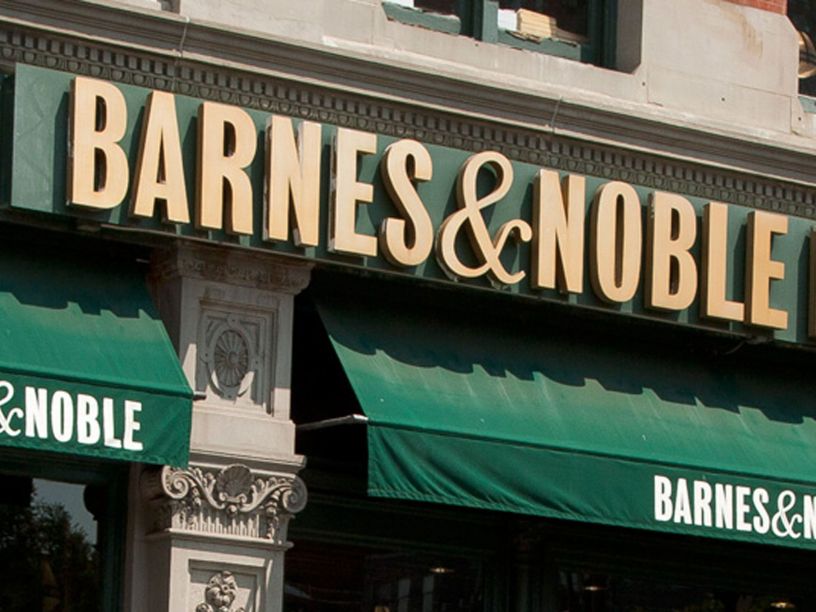Bounding into Comics reports on SF/fantasy author Fonda Lee‘s recent Twitter tirade against bookstores devoting multiple shelves to dead bestselling authors such as J.R.R. Tolkien and Robert Jordan, and leaving fewer shelves left over for her, or other lesser-known modern writers.
This is what modern fantasy writers are up against. In my local B&N, most authors are lucky to find a copy of their book, super lucky if it’s face out. There are 3.5 shelves for Tolkien. 1.5 for Jordan. Here’s who we compete against for shelf space: not each other, but dead guys. pic.twitter.com/fLUagKPIUX
— Fonda Lee (@FondaJLee) March 9, 2019
She adds, “I found one copy of my WFA-winning book. One of most of the other Nebula and Hugo nominees. One copy of The Fifth Season. 18 copies of LOTR.” If bookstores are supposed to be a place of discovery, she wonders, why do they think people are going to “discover” these writers who’ve been around for decades, and bestsellers for much of that. She concludes with a plea to support independent bookstores, who she feels are much better at stocking a variety of titles.
But who should be blamed for this? Bookstores like Barnes & Noble aren’t charities. They’re businesses, who make decisions based on their sales. (Granted, in B&N’s case, they don’t exactly have a history of making very good decisions, but still.) Tolkien and Jordan are justly considered classics, with a proven track record of continuing to sell well to every new generation, even years or decades after the writer’s death. Even still-living writers like J.K. Rowling are still selling perennially well, and they’re another one who probably gets multiple shelves to themself. Why would Barnes & Noble forego these sales that are practically guaranteed, in favor of carrying more books fewer people have ever heard of?
This is the very conundrum that gave Amazon its start—you simply can’t find a good selection of books at the average bookstore, compared to all the books that exist out there. But Amazon can carry all of them. Of course, the flip side of this is that you don’t get very good discoverability at online stores—or, at least, you don’t get the same kind of discoverability you do in a physical location where you can walk the aisles and look at every title as you pass. (Will VR ever solve this conundrum? A virtual Amazon store, where you can look at every title on the shelf as you walk past? Color me doubtful…)
At the same time, Lee does have a point that this glut of bestsellers and dearth of midlist titles isn’t doing the publishing industry any favors. It’s only serving to perpetuate the emphasis on bestsellers that has led to the “death of the midlist” and its migration to self-publishing. But this is a vicious cycle—a chicken-or-the-egg problem. Stocking fewer bestsellers in stores would lead to selling fewer bestsellers, which would land the publishing industry in more trouble than it already is.
The real problem with commercial, non-indie bookselling is that the last few decades have effectively castrated it. The distributors who used to know every neighborhood by heart and stock each store with a customized mix of books designed just for its patrons have long since died out, leaving a homogenized one-size-fits-all-but-not-very-well market because most places that carry books simply don’t have the expertise necessary to customize their selections, or the time and attention necessary to develop it.
There isn’t an easy solution to this, so there’s probably not much point in criticizing Lee for complaining. The problem is a real one. But it’s hard to see any way out of the hole the publishing industry has dug itself into—especially since the publishing industry seems not to want to put down the shovel.


Great article! And yes, exposure is a problem for authors, as I know all too well.
My oft-repeated suggestion for the discovery issue would be to put books in one of the few local venues that Amazon has been unable to crack—supermarkets. The baking section could include cookbooks alongside the flour. The meat section could include books on BBQing. A Starbucks-like location could stock both bestsellers and an array of mid-list books such as those by Fonda Lee. There could be a cover-out section that rotates those titles every week or two. Those coming in shopping could then check out what is offered.
The profit margins for supermarkets is small, so their distribution systems are highly efficient. That could benefit authors and publishers.
LikeLike
She’s right. The big bookstores are eating their seed corn. They are concentrating on short term profits at the expense of nurturing their best customers (the regular readers who already own all the copies of Tolkien they need and are looking for something new to pick up) and the new authors who will be their source of future sales.
They are behaving like a sunset industry: one that ignores its future because it believes it does not have one. In this case it will be a self-fulfilling prophesy.
LikeLike